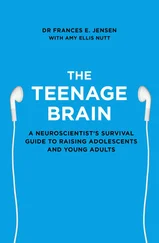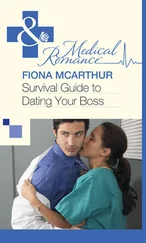Dee Snider - Teenage Survival Guide
Здесь есть возможность читать онлайн «Dee Snider - Teenage Survival Guide» весь текст электронной книги совершенно бесплатно (целиком полную версию без сокращений). В некоторых случаях можно слушать аудио, скачать через торрент в формате fb2 и присутствует краткое содержание. Жанр: Детская образовательная литература, на английском языке. Описание произведения, (предисловие) а так же отзывы посетителей доступны на портале библиотеки ЛибКат.
- Название:Teenage Survival Guide
- Автор:
- Жанр:
- Год:неизвестен
- ISBN:нет данных
- Рейтинг книги:4.5 / 5. Голосов: 4
-
Избранное:Добавить в избранное
- Отзывы:
-
Ваша оценка:
- 100
- 1
- 2
- 3
- 4
- 5
Teenage Survival Guide: краткое содержание, описание и аннотация
Предлагаем к чтению аннотацию, описание, краткое содержание или предисловие (зависит от того, что написал сам автор книги «Teenage Survival Guide»). Если вы не нашли необходимую информацию о книге — напишите в комментариях, мы постараемся отыскать её.
Teenage Survival Guide — читать онлайн бесплатно полную книгу (весь текст) целиком
Ниже представлен текст книги, разбитый по страницам. Система сохранения места последней прочитанной страницы, позволяет с удобством читать онлайн бесплатно книгу «Teenage Survival Guide», без необходимости каждый раз заново искать на чём Вы остановились. Поставьте закладку, и сможете в любой момент перейти на страницу, на которой закончили чтение.
Интервал:
Закладка:
An example: My parents once bought me a pair of white buck-skin shoes—ironically, the type popularized by Pat Boone in the 1950s—and insisted I wear them to school. Hideous was not a strong enough adjective to describe these shoes, which resembled two white Volkswagens. Volkswagens would have been an improvement. Now, this was around 1970, a time when the student uniform was frayed blue jeans and sneakers. I had enough trouble as it was fitting in with my peers, and to wear those shoes to class would have meant eternal humiliation. Damnation. Possibly capital punishment. "Mr. Snider, you are hereby sentenced to a cruel and painful death for having committed an unpardonable fashion faux pas..."
Truth was, though the white bucks were definitely gross, most of my peers probably would have been too preoccupied checking their own reflections in the classroom windows to have paid much attention. They were trying to blend in with the crowd as frantically as I was. But when I looked down at my feet, I saw these two giant white flotation collars with flashing neon arrows. The others just had to notice. And if they didn't laugh outwardly, I figured, they were just being nice.
I was in tears, nearly hysterical, begging my parents not to force me to wear these shoes. You would think that because I was obviously so upset, they might have reconsidered, no matter how trivial it seemed to them. But no-ooo! First they laughed. (And made things worse by pointing out, "Pat Boone wears these shoes!" Aargh!) Then they yelled at me. My problem was not a "real" problem; I was being "silly."
This is how real it was to me: I earned money from mowing neighbors' lawns and delivering newspapers, went down to the local shoe store and bought a pair of happening shoes. For the next six months I left the house wearing the white bucks, took the earliest bus to school, so that it was still dark out and virtually no one was patrolling the hails, sprinted to my locker and changed into my new shoes. At the end of the day I waited until the halls were deserted, changed back into the buckskins and took the late bus home. That's how real a problem of having to wear on ugly, unfashionable pair of shoes was to me at age fourteen. Extremely real. Seriously real. I'm talking very real.
And, since I never wore the white bucks, they never wore out. My parents were so impressed with the shoes' durability they planned to buy them for the entire family. Fortunately, my parents dropped the idea.
It's all relative, isn't it? There's no question that your father's getting laid off from work is a lot more serious than your not making the final cut for the tennis team. But your parents are armed with the resources and coping mechanisms that come with age and experience. In most cases they are better prepared to contend with their crises. It seems as if every problem you experience is for the first time, and you're afraid that you may not have the answer or be able to survive it.
I think you'll identify with many of my recollections here, whether you're satisfied or dissatisfied with your life so far, popular or unpopular. This isn't a book just for losers, the downtrodden, the huddled masses yearning to be free; it's for anybody who wants to gain a better understanding of himself, his parents, his friends and his future. The insights offered apply not only to your teenage life but will be just as valuable as you enter adulthood and encounter many of the same situations and characters. I don't want to depress you, but high school is forever.
You will find that work becomes the equivalent of what school was, with a boss instead of a teacher. And just as in school, you will have to cope with a similar cross section of personalities: leaders, followers, bullies, dudes and dudettes, wimps. The difference is that as an adult, you will enjoy more freedoms and, hopefully, possess a better understanding of who you are and what you want from life.
I've tried to keep the book's tone light because, after all, humor is the key to surviving; without it, you'll never make it. But there are subjects, such as coping with parental abuse, drugs and alcohol, sex, depression and suicidal feelings, that need some seriousness. In the final chapter, Help Yourself, we've provided the names, addresses and phone numbers of organizations and agencies that sincerely want to help you, regardless of your problems.
A thought: What happens if your parents stumble across this book while straightening up your room? For one thing, they'll probably begin keeping their bedroom door locked at night. Second, you probably receive a raise in your allowance. And they definitely won't be telling you to clean your room. Because of my rather, er, extreme appearance and my band's pretty ferocious music I can see them now, cowering in a corner: "That Dee Snider, he's written a book against us parents. It's antiauthority." In Teenage Survival Guide, I am a bit tough on parents, no doubt about it. Being a father myself, I recognize the difficulties involved but still feel parents owe their children a certain amount of caring, understanding and responsible behavior. And yes, I am antiauthority, but my definition of authority is anyone or anything that restricts a person from exploring his potential, from being an individual, from enjoying himself. Those authorities can be adults, but more often than not they are people your own age.
You may want to share Teenage Survival Guide with your parents, to help them gain a better understanding of you and your world, which is very different from the one in which they grew up. But ultimately, this book isn't for your parental units, it's for you.
—Dee Snider, Summer 1987
P.S.: No need to thank me—I'm being paid.
1. YOU
The time has come for you to make a stand. You've got to do things your own way. Forget about the style, forget the brand,
'Cause every dog has his own day. It doesn't matter what the others think, What counts is, do you like you? You think you're drownin', But you'll never sink,Just do what you wanna do.
—"lookin' out for #1," Twisted Sister
1. The Good Old Days Sucked
“These are the best years of your life.” How many times have you had a finger shaken in your face and heard those words, usually when you're totally depressed. It makes you think, "The best years of my life? You mean it's going to get worse?"
You know the old saying, Youth is wasted on the young? How true. Isn't it amazing that while teenagers wait impatiently to reach maturity, grown-ups gaze at their high school rings and recall wistfully the halcyon days of their youth. And the older they get, the better they remember it as being: a time of innocence and, in comparison to adulthood, with its "grown-up," "real" problems, a breeze.
"Ah, yes," they say with a sigh, "those were the good old days."
Not for me they weren't. I've never looked back fondly. Life has gotten better and better for me, and the only reason I look back at all is to learn from the past. Too much looking back prevents you from moving forward. I grew up in the heart of suburbia: Baldwin, Long Island, about a half-hour from New York City. Back then I wasn't Dee, but Daniel, Snider—a tall, overly sensitive kid who used to cry a lot, and with pretty good reason. At home I didn't get along with my parents. (And my parents didn't know it.) At school I was an outcast. I wasn't comfortable with the way I looked or the way I acted. At times I was painfully lonely. When I was in junior high school, do you know what I lived for? "Star Trek," on Friday nights. Thar right, the high point of my life was a one-hour TV show. I didn't have many friends or a girlfriend, so I'd just hang around the house on weekends, and I can remember counting down the days to "Star Trek," beginning on Mondays. Lame, huh? It gets worse: The network canceled the show.
Читать дальшеИнтервал:
Закладка:
Похожие книги на «Teenage Survival Guide»
Представляем Вашему вниманию похожие книги на «Teenage Survival Guide» списком для выбора. Мы отобрали схожую по названию и смыслу литературу в надежде предоставить читателям больше вариантов отыскать новые, интересные, ещё непрочитанные произведения.
Обсуждение, отзывы о книге «Teenage Survival Guide» и просто собственные мнения читателей. Оставьте ваши комментарии, напишите, что Вы думаете о произведении, его смысле или главных героях. Укажите что конкретно понравилось, а что нет, и почему Вы так считаете.











